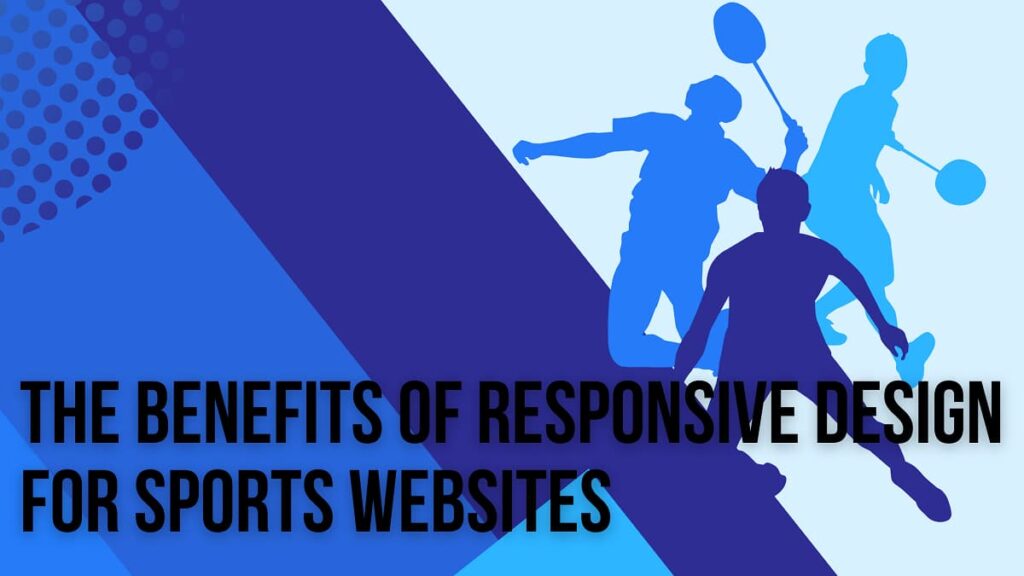
Sports websites are an essential part of the sports industry. From providing live scores and highlights to news and analysis, sports websites offer a wealth of information to fans around the world. However, with the increasing use of mobile devices, it’s essential for sports websites to have a responsive design. In this article, we’ll explore the benefits of responsive design for sports websites.
What is Responsive Design?
Responsive design is a design approach that aims to create a website that adapts to different screen sizes and resolutions. In other words, a website with responsive design adjusts its layout and content based on the device it’s being viewed on. To have a responsive website you must install a responsive WordPress theme for Sport. This means that the website will look and function correctly whether it’s being viewed on a desktop computer, a tablet, or a smartphone.
Benefits of Responsive Design for Sports Websites
Improved User Experience
The primary benefit of responsive design for sports websites is improved user experience. With a responsive design, the website will be optimized for the device it’s being viewed on, which means that users will have a more enjoyable and efficient browsing experience. The website will be easier to navigate, and users won’t need to zoom in and out or scroll horizontally to view content.
Increased Mobile Traffic
Mobile devices are becoming increasingly popular for browsing the internet, and sports websites are no exception. In fact, sports fans are more likely to access sports websites on their mobile devices than on desktop computers. With a responsive design, sports websites can cater to this growing mobile audience and increase their mobile traffic.
Higher Search Engine Rankings
Search engines like Google prioritize websites with responsive design. This means that sports websites with a responsive design are more likely to rank higher in search engine results pages, which can lead to more traffic and higher visibility.
Consistent Branding
Sports websites are an essential part of a sports brand’s online presence. With a responsive design, sports websites can maintain consistent branding across all devices. This means that users will recognize the brand and its messaging whether they’re viewing the website on a desktop computer or a smartphone.
Faster Load Times
Mobile devices are often slower than desktop computers when it comes to internet connectivity. With a responsive design, sports websites can optimize their loading times for mobile devices, ensuring that users won’t have to wait too long for the website to load. This is especially important for sports fans who want to check live scores or updates on the go.
Increased Engagement
Sports fans are passionate about their favorite sports teams and players, and they want to engage with their favorite sports websites. With a responsive design, sports websites can offer a seamless and engaging browsing experience, which can increase user engagement and drive more traffic to the website.
Reduced Bounce Rates
Bounce rate refers to the percentage of users who leave a website after viewing only one page. With a responsive design, sports websites can reduce their bounce rates, as users will be more likely to navigate through the website and view multiple pages. This can lead to more conversions and increased revenue for sports brands.
Better Accessibility
Responsive design can make sports websites more accessible to users with disabilities. By optimizing the website for different screen sizes and resolutions, sports websites can ensure that users with visual impairments can view the website’s content clearly and easily. Additionally, responsive design can make it easier for users with motor impairments to navigate the website, as they won’t need to zoom in or out or scroll horizontally to view content.
Increased Social Sharing
Sports fans love to share their favorite sports moments on social media. With a responsive design, sports websites can make it easier for users to share content on social media platforms, leading to increased social media engagement and more traffic to the website.
Lower Maintenance Costs
Responsive design can reduce the maintenance costs associated with sports websites. With a responsive design, sports brands can maintain one website for all devices, rather than creating separate websites for desktop computers, tablets, and smartphones. This can save time and money, as sports brands won’t need to update multiple websites separately.
Improved Analytics
Responsive design can provide sports brands with better analytics about their website’s performance. With a responsive design, sports brands can track user behavior across all devices, giving them a better understanding of how users interact with the website. This can lead to insights that can be used to improve the website’s performance and drive more traffic and revenue.
Future-Proofing
Responsive design can future-proof sports websites by ensuring that the website will be compatible with new devices as they are released. With a responsive design, sports brands can be confident that their website will remain functional and user-friendly for years to come, regardless of the devices that users choose to view the website on.
Conclusion
In today’s world, mobile devices are essential for browsing the internet, and sports websites are no exception. With a responsive design, sports websites can offer an optimized browsing experience for users on all devices. It also leads to improved user experience, increased mobile traffic, higher search engine rankings.
Responsive website aid in consistent branding, faster load times, increased engagement, and reduced bounce rates. If you’re looking to enhance your sports website, consider implementing a responsive design to take advantage of these benefits.
I am a WordPress developer and doing it the right way. The themes and plugins I develop have a common goal of keeping it as simple as possible.